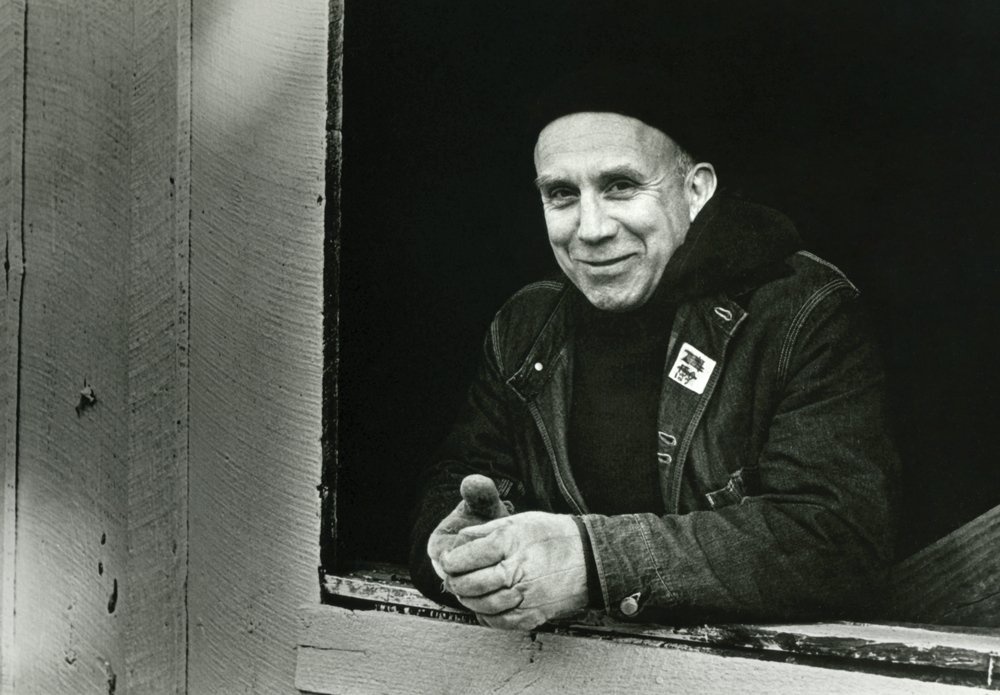Columbia College | Columbia University in the City of New York
Letters to the Editor

Edward Rice ’40
A Profound Influence
Thank you! I was overjoyed to read Thomas Vinciguerra ’85, JRN’86, GSAS’90’s excellent piece on Thomas Merton ’38, GSAS’39 in the Fall 2018 issue. Merton, more than anyone else, had a profound effect on my early life, leading me to abjure all conduits of standard success and enter into an 11-year “retreat” of alternative education, communal living, antiwar activity, music, mediation, political theater and writing.
Even when I married and had children, a career path of entrepreneurship and craft permitted our family generous blocks of time for wilderness exploration by foot and air, as well as latitude for my and my wife’s inner lives. Still on our shelf are tattered Merton volumes from undergraduate days at Columbia, and I have never regretted one iota the path he signaled.
Merton rightly belongs in the “Hall of Fame.” Vinciguerra’s piece is a lovely reminder, and I maintain with humor that the seven-story mountain was but the climb up to a friend’s room in Furnald Hall.
Kurt Meyers ’70
Tucson, Ariz.
Rx for a Lucky Life
Edward “Ted” Tayler, the late Lionel Trilling Professor Emeritus in the Humanities, was a 29-year-old newly minted Ph.D. from Stanford when I met him in Humanities A on my first day at Columbia College in fall 1960. I found him to be a magician in the classroom, but he also became my friend.
Throughout my undergraduate years and subsequent studies toward my doctorate, he wrung from my mind every drop of intellectual kindling to light up my understanding of what he liked to call “old books.” “Sweat a little more, Paulie,” was his characteristic response to my first efforts to elucidate a literary crux or biblical selection he would send me during all of these years. Early on, he sent me text from John VIII:58 — “Before Abraham was, I am.” “If you get this, Paulie, you’ve got English Renaissance religious literature.”
We would meet for lunch at Henry’s on Broadway at West 106th Street (he loved the hamburger), and talk about Dickinson, Hopkins and Stevens, and then our grandchildren. For the last 20 years or so, I selfishly thought of him as my private treasure, but I was always aware of his unique intellect and sainted presence, which I had no right to claim as mine.
Ted acted as my prescription for experiencing the life of the mind. He possessed a personality, voice and teaching style students never forget. Those of us lucky enough to have experienced him received a priceless education in how to stand back from ourselves to think about cultural change and its impact on art. He taught us to look for differences from, not similarities to, ourselves; to apprehend easily overwhelming conceptions of time. He encouraged us to be patient “understanders,” in Ben Jonson’s phrase. He taught me to think — and to be grateful. How lucky was I?!
Paul Neuthaler ’64
Chappaqua, N.Y.
Issue Contents
Published three times a year by Columbia College for alumni, students, faculty, parents and friends.
Columbia Alumni Center
622 W. 113th St., MC 4530, 6th Fl.
New York, NY 10025
212-851-7852
cct@columbia.edu
Columbia Alumni Center
622 W. 113th St., MC 4530, 4th Fl.
New York, NY 10025
212-851-7488
ccalumni@columbia.edu

